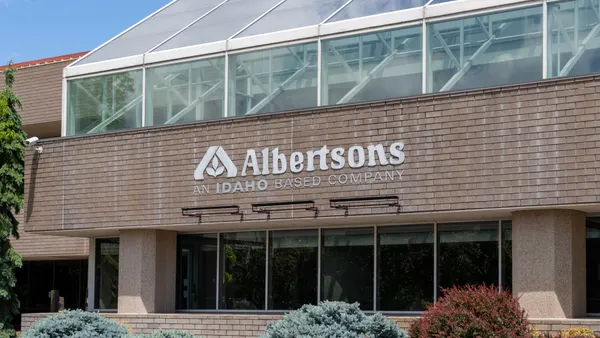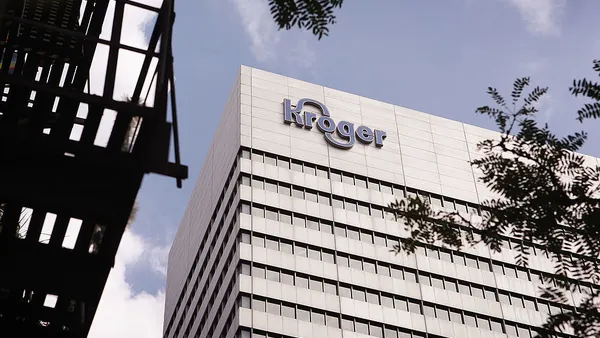Dive Brief:
- Aldi South Group, parent of Aldi U.S., intends to attain net-zero greenhouse gas emissions across its operations by 2050, according to a Thursday announcement from the German grocery store operator.
- The Science Based Targets initiative (SBTi) has validated the grocer’s emissions-reduction targets, which are aimed at helping to combat global warming, Aldi said.
- Aldi is highlighting steps it is taking to address climate change as the company moves forward with plans to significantly expand its presence in the U.S. during the next few years.
Dive Insight:
Aldi South plans to work with product suppliers, logistics companies, equipment vendors and energy suppliers to help the company reduce the amount of greenhouse gases it generates.
The goals the company laid out apply to the international retailer’s operations in multiple parts of the world, including the U.S. Aldi’s U.S. unit will play “a vital role in advancing progress on these goals,” the company said.
In addition to the U.S., Aldi South runs stores in European countries including Germany, Austria, Switzerland and the United Kingdom, as well as China and Australia. [https://sustainability.aldisouthgroup.com/about-aldi/company-profile]. Aldi currently operates more than 2,400 stores in the U.S.
Jason Hart, CEO of Aldi U.S., said in a statement that the company’s heavy focus on private label products strengthen its ability to operate sustainably by allowing it to “work more directly” with suppliers to bring down emissions.
Aldi South said its goals include cutting its Scope 1 and Scope 2 emissions by 90% compared with 2022 levels. Scope 1 emissions refer to emissions a company generates directly through its own operations, while Scope 2 emissions are those a company is linked to indirectly through activities like buying electricity.
The grocery company also plans to reduce its Scope 3 emissions — which comprise emissions from companies that are part of its value chain — by 90% by 2050 compared with levels in 2022. Aldi added that it plans to cut Scope 1 FLAG emissions by 72% by 2050 from a 2021 base year, and claims it is one of the first retailers to lay out specific goals for reducing FLAG emissions.
Aldi said it plans to reach its emissions-reduction goals by taking a variety of steps to work with companies in its supply chain, which it said are responsible for most of its emissions. The grocery store operator said those measures would include working with nongovernmental organizations and funding pilot programs on farms. Aldi added that its farm-based efforts would focus on its dairy and beef supply chains.
In addition, Aldi plans to work with third-party logistics companies on efforts to use alternative fuels and electric trucks. The company is making progress toward its previously stated goal of transitioning all of its stores to natural refrigerants by 2035.
Earlier this year, Aldi said it had stopped offering plastic shopping bags at all of its U.S. stores.














